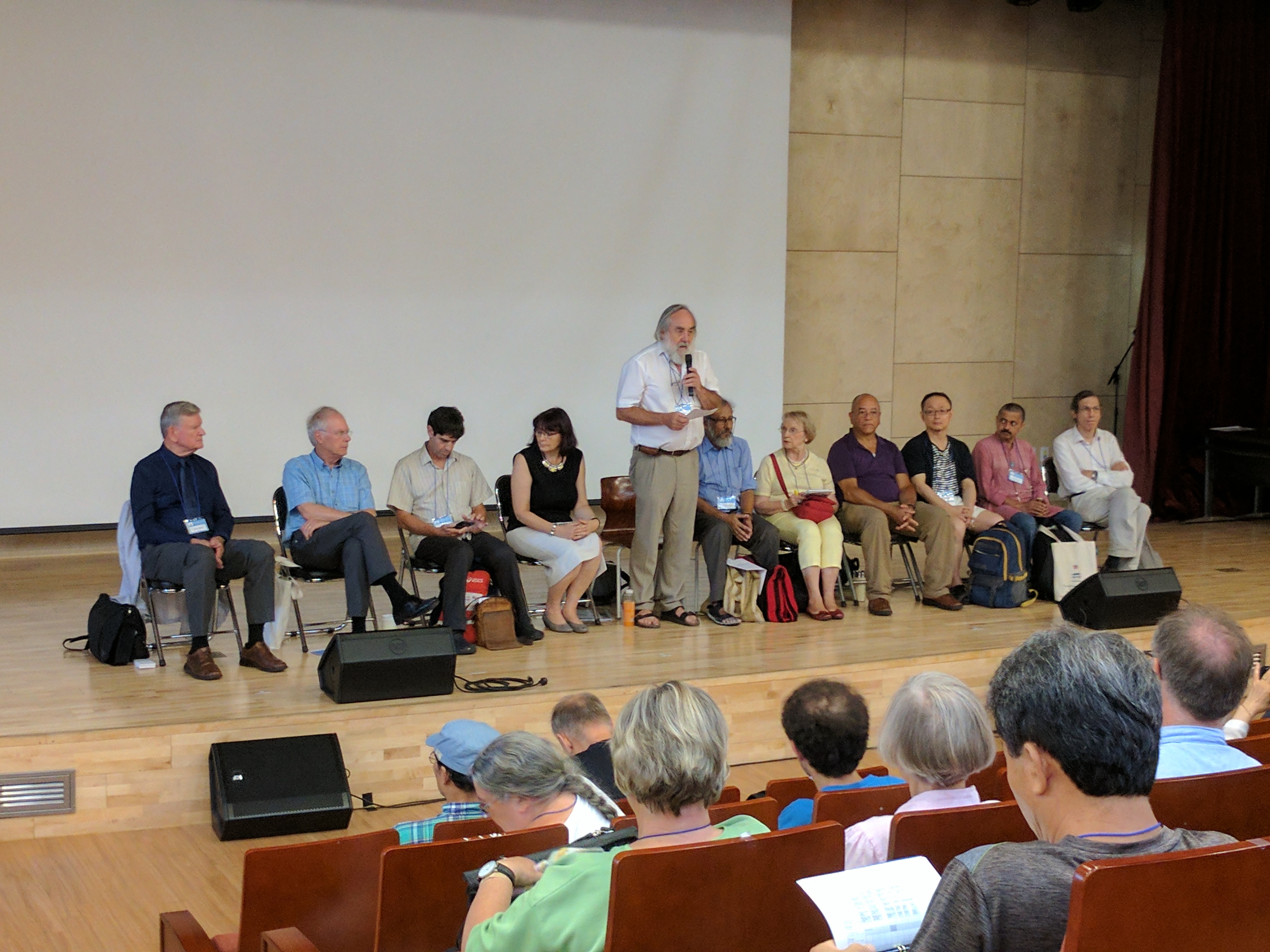Akademio De Esperanto on:
[Wikipedia]
[Google]
[Amazon]
 The Akademio de Esperanto (AdE; ) is an independent body of
The Akademio de Esperanto (AdE; ) is an independent body of
 Members are elected by their peers for a period of nine years, with elections being held every three years for a third of the members. Following the last elections in February 2025, the Akademio de Esperanto consists of the following members:
Members are elected by their peers for a period of nine years, with elections being held every three years for a third of the members. Following the last elections in February 2025, the Akademio de Esperanto consists of the following members:AdE Members and Correspondents
/ref> * Javier Alcalde * BAK Giwan * Marc Bavant * Hans Becklin * Cyril Robert Brosch * Eckhard Bick * Duncan Charters * CHO Sung Ho * Markos Kramer ( Marcos Cramer) * Probal Dasgupta * * Birke Dockhorn * Mariana Evlogieva * GONG Xiaofeng (Arko) * Grant Goodall * Edmund Grimley-Evans * Nikolao Gudskov * Maritza Gutiérrez González * HIROTAKA Masaaki * Jesper Jacobsen * Ruth Kevess-Cohen * LIU Haitao * François Lo Jacomo * Anna Löwenstein * Ahmad Mamdoohi * MAO Zifu * Valentin Melnikov * Lee Miller * Carlo Minnaja * Abel Montagut * Brian Moon * Pavel Mozhaev (Paŭlo Moĵajevo) * Jorge Rafael (Rafa) Nogueras * Marc van Oostendorp * Tim Owen * * Jukka Pietiläinen * Fernando Pita * A. Giridhar Rao * * Nicola Ruggiero * * Maria Rosaria (Sara) Spanò * José Antonio Vergara * Amri Wandel * Bertilo Wennergren Former members have included Gaston Waringhien, Rüdiger Eichholz, Jorge Camacho, Victor Sadler, Michel Duc-Goninaz, Lena Karpunina, and William Auld (president, 1979–1983).
Esperanto
Esperanto (, ) is the world's most widely spoken Constructed language, constructed international auxiliary language. Created by L. L. Zamenhof in 1887 to be 'the International Language' (), it is intended to be a universal second language for ...
speakers who steward the evolution of said language by keeping it consistent with the '' Fundamento de Esperanto'' in accordance with the Declaration of Boulogne. Modeled somewhat after the Académie française
An academy (Attic Greek: Ἀκαδήμεια; Koine Greek Ἀκαδημία) is an institution of tertiary education. The name traces back to Plato's school of philosophy, founded approximately 386 BC at Akademia, a sanctuary of Athena, the go ...
and the Real Academia Española
The Royal Spanish Academy (, ; ) is Spain's official royal institution with a mission to ensure the stability of the Spanish language. It is based in Madrid, Spain, and is affiliated with national language academies in 22 other Hispanopho ...
, the Akademio was proposed by L. L. Zamenhof, the creator of Esperanto, at the first World Esperanto Congress, and was founded soon thereafter under the name ''Lingva Komitato'' (Language Committee). This Committee had a "superior commission" called the ''Akademio''. In 1948, within the framework of a general reorganization, the Language Committee and the Academy combined to form the Akademio de Esperanto.
The Akademio consists of 45 members and has a president, vice presidents, and a secretary. The Academy also elects "Correspondents" -- eminent individuals who are not able to regularly participate in the work of the Academy, but would like to lend their name to it. The Academy is funded by a subsidy from the Universal Esperanto Association and by donations.
Members
 Members are elected by their peers for a period of nine years, with elections being held every three years for a third of the members. Following the last elections in February 2025, the Akademio de Esperanto consists of the following members:
Members are elected by their peers for a period of nine years, with elections being held every three years for a third of the members. Following the last elections in February 2025, the Akademio de Esperanto consists of the following members:/ref> * Javier Alcalde * BAK Giwan * Marc Bavant * Hans Becklin * Cyril Robert Brosch * Eckhard Bick * Duncan Charters * CHO Sung Ho * Markos Kramer ( Marcos Cramer) * Probal Dasgupta * * Birke Dockhorn * Mariana Evlogieva * GONG Xiaofeng (Arko) * Grant Goodall * Edmund Grimley-Evans * Nikolao Gudskov * Maritza Gutiérrez González * HIROTAKA Masaaki * Jesper Jacobsen * Ruth Kevess-Cohen * LIU Haitao * François Lo Jacomo * Anna Löwenstein * Ahmad Mamdoohi * MAO Zifu * Valentin Melnikov * Lee Miller * Carlo Minnaja * Abel Montagut * Brian Moon * Pavel Mozhaev (Paŭlo Moĵajevo) * Jorge Rafael (Rafa) Nogueras * Marc van Oostendorp * Tim Owen * * Jukka Pietiläinen * Fernando Pita * A. Giridhar Rao * * Nicola Ruggiero * * Maria Rosaria (Sara) Spanò * José Antonio Vergara * Amri Wandel * Bertilo Wennergren Former members have included Gaston Waringhien, Rüdiger Eichholz, Jorge Camacho, Victor Sadler, Michel Duc-Goninaz, Lena Karpunina, and William Auld (president, 1979–1983).
Correspondents
As of February 2025, these are the Correspondents of the Academy: Wael Al-Mahdi, Joakim Enwall, Sabine Fiedler, Federico Gobbo, Ingrid Maier, Melanie Maradan, Veronika Poór, Keyhan Sayadpour Zanjani, and Esther Schor.See also
*List of language regulators
This is a list of bodies that consider themselves to be authorities on standard languages, often called language academies. Language academies are motivated by, or closely associated with, linguistic purism and prestige, and typically publish p ...
References
External links
* {{Authority control Esperanto organizations Academies Language regulators